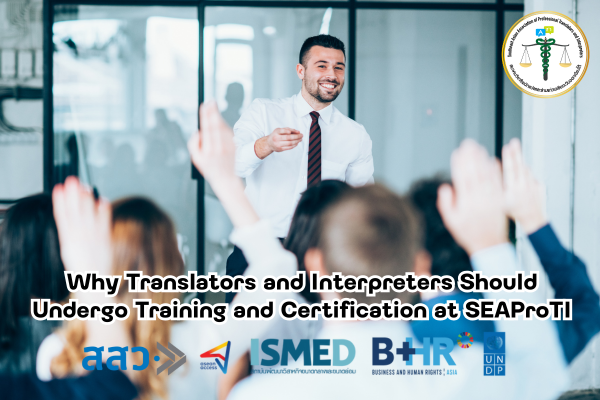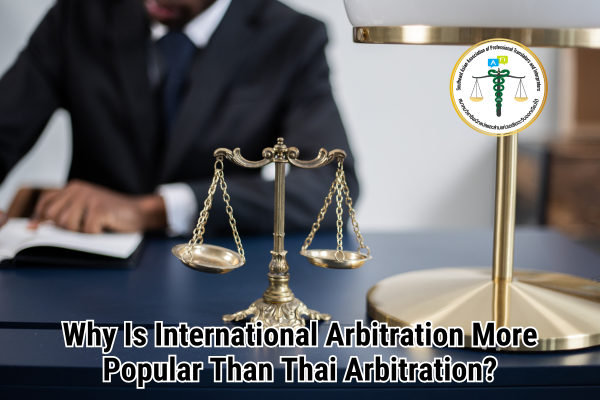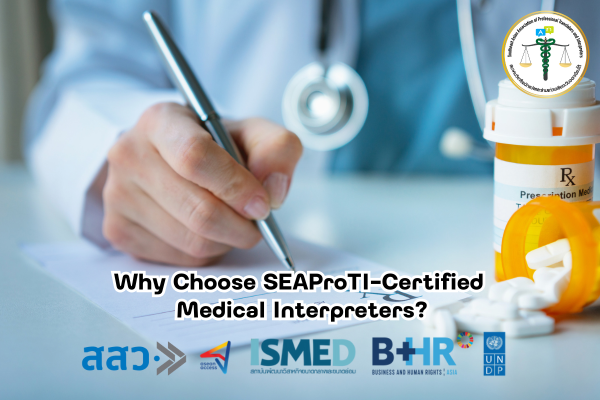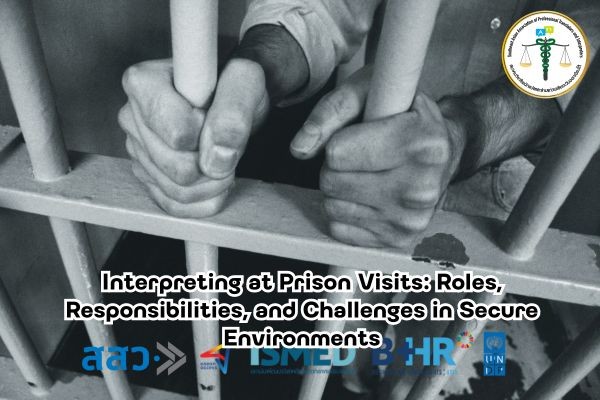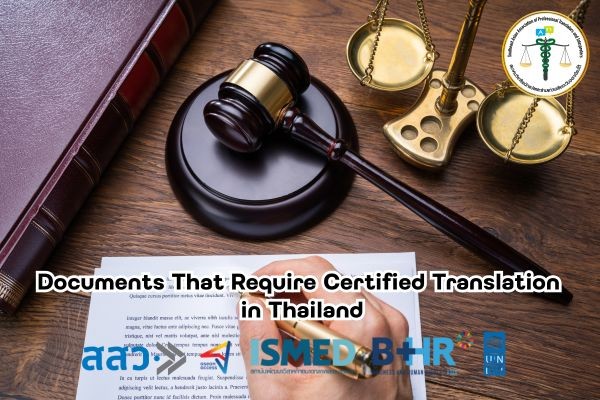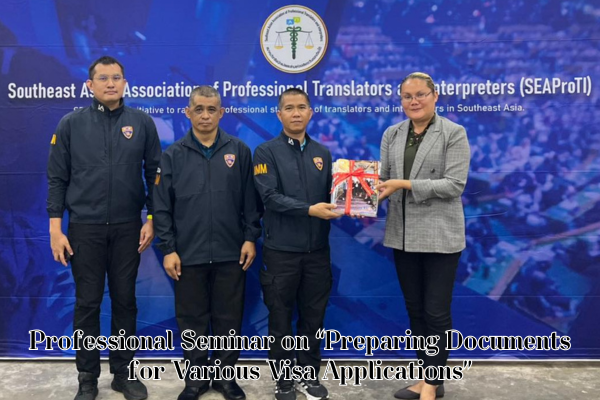Why Translators and Interpreters Should Undergo Training and Certification to Become Certified Translators, Certified Translation Verifiers, and Certified Interpreters under the Southeast Asian Professional Translators and Interpreters Association (SEAProTI)
In today’s globalized world, language plays a crucial role as a bridge between cultures and nations. Translators and interpreters have become indispensable agents in facilitating communication across linguistic boundaries. However, linguistic proficiency alone is no longer sufficient in contexts involving law, healthcare, commerce, or human rights. Professional certification has therefore become a vital mechanism to ensure quality, accountability, and trust in translation and interpreting services.
This article explores the importance of professional training and certification for translators and interpreters, particularly the process of registration as Certified Translators, Certified Translation Verifiers, and Certified Interpreters under the Southeast Asian Professional Translators and Interpreters Association (SEAProTI)—a regionally recognized body that upholds international standards of the profession.
1. Certification: A Guarantee of Professional Standards and Credibility
Undergoing training and certification by SEAProTI ensures that professionals meet standardized qualifications recognized both regionally and internationally. This includes:
- Applied linguistics and translation/interpreting techniques
- Professional ethics and context-specific competencies (e.g., legal document translation, courtroom interpreting, medical interpreting)
- Document formatting and legal equivalence standards
Professionals certified by SEAProTI are regarded as credible and qualified by governmental agencies, private corporations, and international organizations.
2. Protection of Client Rights and Service Integrity
Even minor translation errors can result in serious consequences—legal, financial, or ethical. For instance:
- An error in translating a contract can affect the obligations or rights of the involved parties.
- Misinterpretation during legal proceedings can lead to the miscarriage of justice or the violation of defendants’ rights.
SEAProTI’s training and certification process instills a strong sense of professional responsibility and provides guidelines to ensure accurate and context-appropriate communication in high-stakes situations.
3. Government and Institutional Recognition of Certified Documents
Translations certified by SEAProTI members are semi-officially recognized by a range of institutions in Southeast Asia, such as:
- Immigration Offices
- Courts of Justice
- Ministries of Labor
- Local government agencies
- Foreign embassies require reliable and verified translation services
Therefore, certified status opens doors to higher-value assignments and a broader professional scope.
4. Access to a Professional Network and Continuing Development
Certified members of SEAProTI become part of a professional community with ongoing support, including:
- Opportunities for Continuing Professional Development (CPD)
- Access to a regional network of professionals
- A platform for publishing research and practice-based work
- The right to use a certified professional seal/logo
These privileges enhance both the visibility and long-term sustainability of one’s career.
5. Risks of Unqualified or Uncertified Practice
Uncertified translators or interpreters who bypass professional training can pose serious risks, including:
- Inaccurate translations with legal or financial consequences
- Unauthorized use of certification seals or professional titles
- Culturally or legally inappropriate interpretations in sensitive settings
Clients are therefore advised to use only certified professionals to ensure the safety, legality, and reliability of multilingual communication.
Conclusion
Training and certification through the Southeast Asian Professional Translators and Interpreters Association (SEAProTI) is not merely a professional formality—it is a structured process that safeguards the quality, accountability, and fairness of multilingual communication, particularly in contexts that touch upon justice, public rights, and international cooperation. Certification strengthens both the profession and the trust of those who depend on accurate and ethical translation and interpreting services.
SEAProTI’s certified translators, translation certification providers, and certified interpreters:
The Southeast Asian Association of Professional Translators and Interpreters (SEAProTI) has officially announced the criteria and qualifications for individuals to register as “Certified Translators,” “Translation Certification Providers,” and “Certified Interpreters” under the association’s regulations. These guidelines are detailed in Sections 9 and 10 of the Royal Thai Government Gazette, issued by the Secretariat of the Cabinet under the Office of the Prime Minister of the Kingdom of Thailand, dated July 25, 2024, Volume 141, Part 66 Ng, Page 100.
To read the full publication, visit: the Royal Thai Government Gazette
เหตุผลที่นักแปลและล่ามควรอบรมและสอบเพื่อขึ้นทะเบียนเป็นนักแปลรับรอง ผู้รับรองการแปล และล่ามรับรองของสมาคมวิชาชีพนักแปลและล่ามแห่งเอเชียตะวันออกเฉียงใต้ (SEAProTI)
ในโลกยุคโลกาภิวัตน์ซึ่งภาษาคือสะพานเชื่อมโยงผู้คนจากหลากวัฒนธรรม อาชีพนักแปลและล่ามได้กลายเป็นฟันเฟืองสำคัญในการขับเคลื่อนการสื่อสารระหว่างประเทศ แต่ความเชี่ยวชาญด้านภาษาเพียงอย่างเดียวไม่อาจเพียงพอต่อการรับผิดชอบในงานที่เกี่ยวข้องกับกฎหมาย การพาณิชย์ การสาธารณสุข หรือสิทธิมนุษยชน การรับรองวิชาชีพจึงเป็นกลไกสำคัญในการยกระดับมาตรฐานของผู้ประกอบวิชาชีพนี้
บทความนี้มีวัตถุประสงค์เพื่อชี้ให้เห็นถึงความจำเป็นที่นักแปลและล่ามควรอบรมและสอบเพื่อขึ้นทะเบียนเป็น “นักแปลรับรอง” “ผู้รับรองการแปล” และ “ล่ามรับรอง” ของ สมาคมวิชาชีพนักแปลและล่ามแห่งเอเชียตะวันออกเฉียงใต้ซึ่งเป็นองค์กรเดียวในภูมิภาคที่มีระบบรับรองคุณวุฒิในระดับสากลที่เชื่อถือได้
1. การรับรองวิชาชีพ: มาตรฐานที่ยกระดับความน่าเชื่อถือ
การผ่านการอบรมและสอบของ SEAProTI ทำให้ผู้ประกอบวิชาชีพได้รับการรับรองตามมาตรฐานที่เป็นที่ยอมรับทั้งในประเทศและต่างประเทศ ไม่ว่าจะเป็นในเชิง:
- ภาษาศาสตร์ประยุกต์และเทคนิคการแปล/ล่าม
- จริยธรรมวิชาชีพและการปฏิบัติงานในบริบทเฉพาะ (เช่น การแปลเอกสารทางกฎหมาย การล่ามในศาล หรือการล่ามในสถานพยาบาล)
- มาตรฐานการจัดรูปแบบเอกสาร เช่น การแปลเอกสารที่มีผลทางกฎหมาย (legal equivalence)
นักแปลรับรองและล่ามรับรองที่ได้รับการขึ้นทะเบียนจาก SEAProTI จึงมีสถานะเป็นผู้เชี่ยวชาญที่หน่วยงานรัฐ บริษัทเอกชน และองค์กรระหว่างประเทศสามารถอ้างอิงได้
2. การคุ้มครองสิทธิของผู้ใช้บริการและผู้รับบริการ
การแปลผิดเพียงเล็กน้อยอาจนำไปสู่ความเสียหายทางกฎหมายหรือสิทธิมนุษยชนที่ประเมินค่าไม่ได้ ตัวอย่างเช่น:
- การแปลผิดในหนังสือสัญญาอาจส่งผลต่อผลประโยชน์หรือข้อผูกพันของคู่สัญญา
- การล่ามผิดในชั้นศาลหรือกระบวนการยุติธรรมอาจทำให้จำเลยสูญเสียสิทธิในการแก้ต่าง
การอบรมและรับรองจาก SEAProTI ทำให้ผู้ประกอบวิชาชีพตระหนักถึงความรับผิดชอบทางจริยธรรมและกฎหมาย และมีแนวปฏิบัติในการรับรองความถูกต้องแม่นยำของการสื่อสารข้ามภาษาในบริบทที่มีผลกระทบสูง
3. การสนับสนุนจากรัฐและความเป็นทางการของเอกสาร
เอกสารที่ผ่านการแปลหรือรับรองโดยนักแปลรับรองของ SEAProTI ได้รับการยอมรับในระดับกึ่งทางการ (semi-official recognition) จากหน่วยงานต่าง ๆ ในประเทศไทย เช่น:
- สำนักงานตรวจคนเข้าเมือง
- ศาลยุติธรรม
- กระทรวงแรงงาน
- หน่วยงานราชการท้องถิ่น
- สถานทูตต่างประเทศบางแห่งที่ต้องการความน่าเชื่อถือจากแหล่งที่มีมาตรฐานกลาง
การขึ้นทะเบียนในฐานะนักแปล/ล่ามรับรองจึงเป็นการเปิดประตูสู่งานในระดับที่สูงขึ้น ทั้งด้านปริมาณและมูลค่าของงาน
4. เครือข่ายวิชาชีพและการพัฒนาต่อเนื่อง
ผู้ที่ได้รับการรับรองจาก SEAProTI จะได้เข้าร่วมในชุมชนวิชาชีพที่มีระบบสนับสนุนอย่างต่อเนื่อง ทั้งในด้าน:
- โอกาสในการเข้าร่วมอบรม CPD (Continuing Professional Development)
- เครือข่ายวิชาชีพในระดับภูมิภาค
- การเผยแพร่ผลงานในเวทีวิชาการ
- สิทธิในการใช้เครื่องหมายรับรองที่ยืนยันคุณวุฒิ
สิ่งเหล่านี้ไม่เพียงยกระดับสถานะในสายงาน แต่ยังเป็นการสร้างความยั่งยืนในวิชาชีพอย่างแท้จริง
5. ข้อพึงระวัง: ผู้แปลที่ไม่มีระบบรับรอง
ในบางกรณีมีผู้ที่ประกอบวิชาชีพโดยไม่ผ่านการอบรมหรือไม่มีการควบคุมมาตรฐานจากสมาคมวิชาชีพ ซึ่งอาจนำไปสู่:
- การแปลผิดที่มีผลทางกฎหมายโดยไม่มีการตรวจทาน
- การแอบอ้างคุณวุฒิหรือใช้ตรารับรองอย่างไม่เหมาะสม
- การล่ามในสถานการณ์อ่อนไหวโดยขาดความเข้าใจเชิงวัฒนธรรมและกฎหมาย
ผู้ใช้บริการจึงควรเลือกใช้ผู้ให้บริการที่ขึ้นทะเบียนอย่างถูกต้อง เพื่อป้องกันความเสียหายและปัญหาทางกฎหมายในอนาคต
สรุป
การอบรมและสอบเพื่อขึ้นทะเบียนเป็นนักแปลรับรอง ผู้รับรองการแปล และล่ามรับรองของสมาคมวิชาชีพนักแปลและล่ามแห่งเอเชียตะวันออกเฉียงใต้ (SEAProTI) มิใช่เพียงเรื่องของสถานะ หากแต่เป็นกระบวนการยกระดับคุณภาพ ความปลอดภัย และความเป็นธรรมของการสื่อสารข้ามภาษาในทุกบริบทของชีวิตจริง โดยเฉพาะในบริบทที่เกี่ยวข้องกับสิทธิ เสรีภาพ และความยุติธรรม
เกี่ยวกับนักแปลรับรอง ผู้รับรองการแปล และล่ามรับรองของสมาคมวิชาชีพนักแปลและล่ามแห่งเอเชียตะวันออกเฉียงใต้
สมาคมวิชาชีพนักแปลและล่ามแห่งเอเชียตะวันออกเฉียงใต้ (SEAProTI) ได้ประกาศหลักเกณฑ์และคุณสมบัติผู้ที่ขึ้นทะเบียนเป็น “นักแปลรับรอง (Certified Translators) และผู้รับรองการแปล (Translation Certification Providers) และล่ามรับรอง (Certified Interpreters)” ของสมาคม หมวดที่ 9 และหมวดที่ 10 ในราชกิจจานุเบกษา ของสำนักเลขาธิการคณะรัฐมนตรี ในสำนักนายกรัฐมนตรี แห่งราชอาณาจักรไทย ลงวันที่ 25 ก.ค. 2567 เล่มที่ 141 ตอนที่ 66 ง หน้า 100 อ่านฉบับเต็มได้ที่: นักแปลรับรอง ผู้รับรองการแปล และล่ามรับรอง


